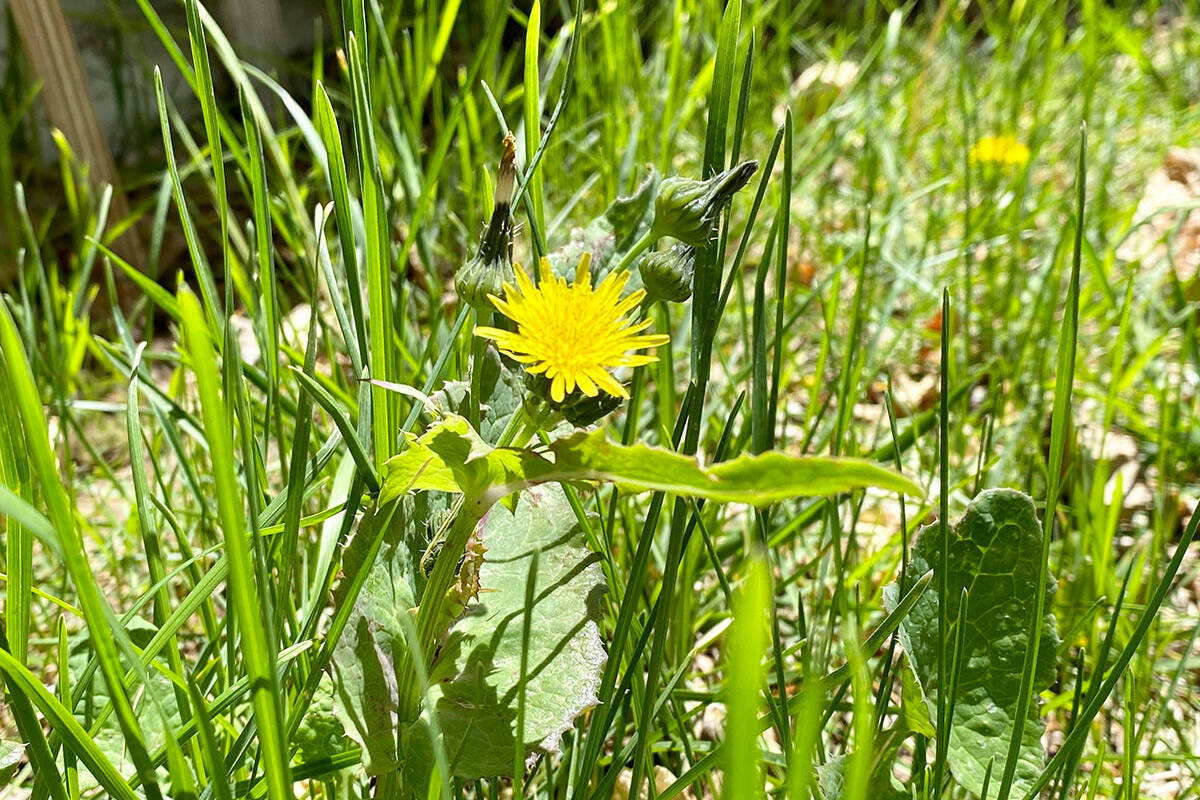Rain brings proliferation of weeds and bugs
We’ve certainly experienced record-breaking rain, snow, and cold weather this year. The cold has made some plants timid to “spring forward,” delaying certain sprouts and blooms. The rain, however, is bringing and will continue to bring some unpleasant and even destructive things to our gardens and vegetation that we should immediately take steps to prevent.
Indeed, seasonal allergy suffers are all too aware of how rain has made allergy symptoms worse this year. Heavy rain causes pollen clumps to break open before they’re actually washed away, in turn releasing more pollen particles into the air. Rain also nourishes plants that produce pollen, as well as increases mold spores.
A bad allergy season is nothing to sneeze at, but we’ll be seeing longer lasting ill effects of these rains in our gardens and surrounding vegetation if we don’t act now. The biggest culprits we’ll be facing are weeds and bugs. The rain has and will continue to increase weed and bug proliferation. And because weeds, such as dandelions and crabgrass, provide a food source for pests, your weed problem will feed your bug problem, literally.
According to Shawn Watt, vice president of purchasing for Star Nursery, we’ll be seeing an overabundance of aphids in April, followed by spider mites in May, and anticipates more ants and roaches than ever. Happily, we shouldn’t be seeing an increase in scorpions because they prefer dry climate (although monsoon rains can flush them out, seeking shelter in your home).
In an effort to bring awareness and help mitigate certain pest populations (like mites, gnats, and aphids), on April 1, Star Nursery gave out 15,000 150-count packs of ladybugs — a beneficial insect, that eats these pests. That’s over 2 million lady bugs released in Southern Nevada, helping to counter this imminent bug boom.
Natural methods of getting rid of bugs is always optimal for the environment, but especially necessary when growing an edible garden. In addition to adding ladybugs to your backyard, consider the plethora of products like Safer Brand that offers products that kill bugs without the use of harmful chemicals.
Another popular natural pesticide is Neem oil — a naturally occurring pesticide found in seeds from the neem tree that has been used for hundreds of years to control pests.
Watt warns not to use oils like this late in the day, as with any oil, mixed with heat and sun, can damage the plant.
As for ousting weeds, stopping them at the seed will help you win the weed war before it starts. Pre-emergent herbicides kill weeds when they begin to sprout from the seed. Pre-emergent is not designed to control existing weeds. Also, do not use this type of herbicide when you’re seeding your lawn, as it will stop grass seeds from sprouting as well. Watt recommends using pre-emergent products in January and July (before monsoon rains come).
Like natural pesticides, there are also natural herbicides and chemical-free methods to get rid of weeds. Jim Schumacher, owner of Boulder City’s Ace Hardware, suggests a few natural ways to get rid of weeds, like using a hand torch. “Flaming” with a weed burner torch is perfect for weeding on sidewalks and gravel. It’s fast, effective, and leaves no chemical run-off, so kids and pets can play in the yard right away.
Schumacher also suggests using products like Harris 20% Vinegar Weed Killer. It Contains NO glyphosate (like Roundup) and is free from chemicals traditionally used in weed killers. This product is safe for use around edible crops (up to two days before harvesting) as well as dog runs. Schumacher warns, whichever pesticide or herbicide you choose, “be sure to follow directions—don’t abuse it.”
Whether it’s weed pollen that lowers air quality, sandbur weeds with their nasty spike balls that stick to us and our pets, or spider mites killing our roses and Italian cypress, now is the time to get ahead of the weeds and bugs, before they outnumber us.
Norma Vally is a seasoned veteran of home improvement; her career includes four seasons as host of Discovery Home Channel’s Emmy-nominated series “Toolbelt Diva.” A columnist and author, Vally splits her time in Southern Nevada, Los Angeles and New York City. Follow her on Facebook at Norma Vally “Toolbelt Diva” and visit her at NormaVally.com. Email her at Norma@NormaVally.com.







